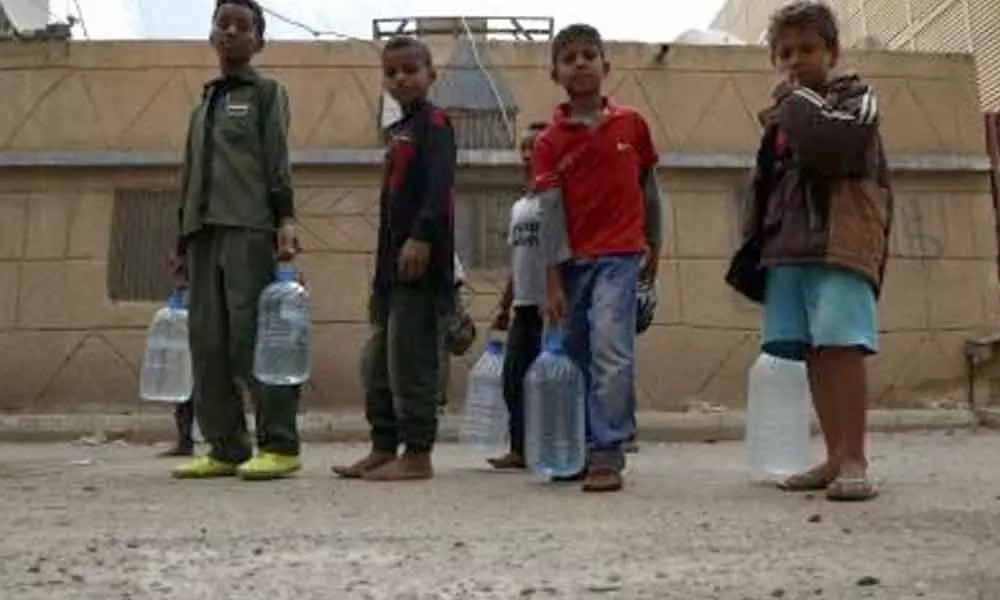Global water crisis looming large

The World Meteorological Organization (WMO), a specialised agency of the United Nations (UN), has warned that climate change increases the global risk of water-related hazards like floods and droughts, and the number of people affected by water scarcity is also expected to soar.
The World Meteorological Organization (WMO), a specialised agency of the United Nations (UN), has warned that climate change increases the global risk of water-related hazards like floods and droughts, and the number of people affected by water scarcity is also expected to soar.
In its new report entitled "The State of Climate Services 2021: Water," the WMO said on Tuesday that 3.6 billion people globally had inadequate access to water at least one month per year in 2018, and by 2050 this number is expected to exceed five billion, Xinhua news agency reported. "The situation is worsening by the fact that only 0.5 per cent of water on the Earth is usable and available freshwater," the report says.
The WMO's data show that water-related hazards have increased in frequency over the past 20 years. Since 2000, flood-related disasters have risen by 134 per cent compared with the two previous decades, while during the same period the number and duration of droughts also increased by 29 per cent. Most drought-related deaths occurred in Africa, indicating a need for stronger end-to-end warning systems for drought in that region. Most of the flood-related deaths and economic losses were recorded in Asia, while Africa was hit the most by drought-related deaths.
"Increasing temperatures are resulting in global and regional precipitation changes, leading to shifts in rainfall patterns and agricultural seasons, with a major impact on food security and human health and well-being," says WMO Secretary-General Petteri Taalas.
Last year saw a continuation of extreme water-related events, which displaced millions of people and killed hundreds across Asia, while in Africa more than two billion people still live in water-stressed countries and suffer lack of access to safe drinking water and sanitation, according to the WMO chief.
Underlining the important role of water resources management in reducing water-related disasters, the WMO recommends that countries, especially small island developing states and least developed countries, increase investment in integrated water resources management and in drought and flood early warning systems.
The WMO also urges countries to fill the capacity gap in collecting data for basic hydrological variables, which underpin climate services and early warning systems, and national level stakeholders to co-develop and operationalize climate services with information users to better support adaptation in the water sector.














